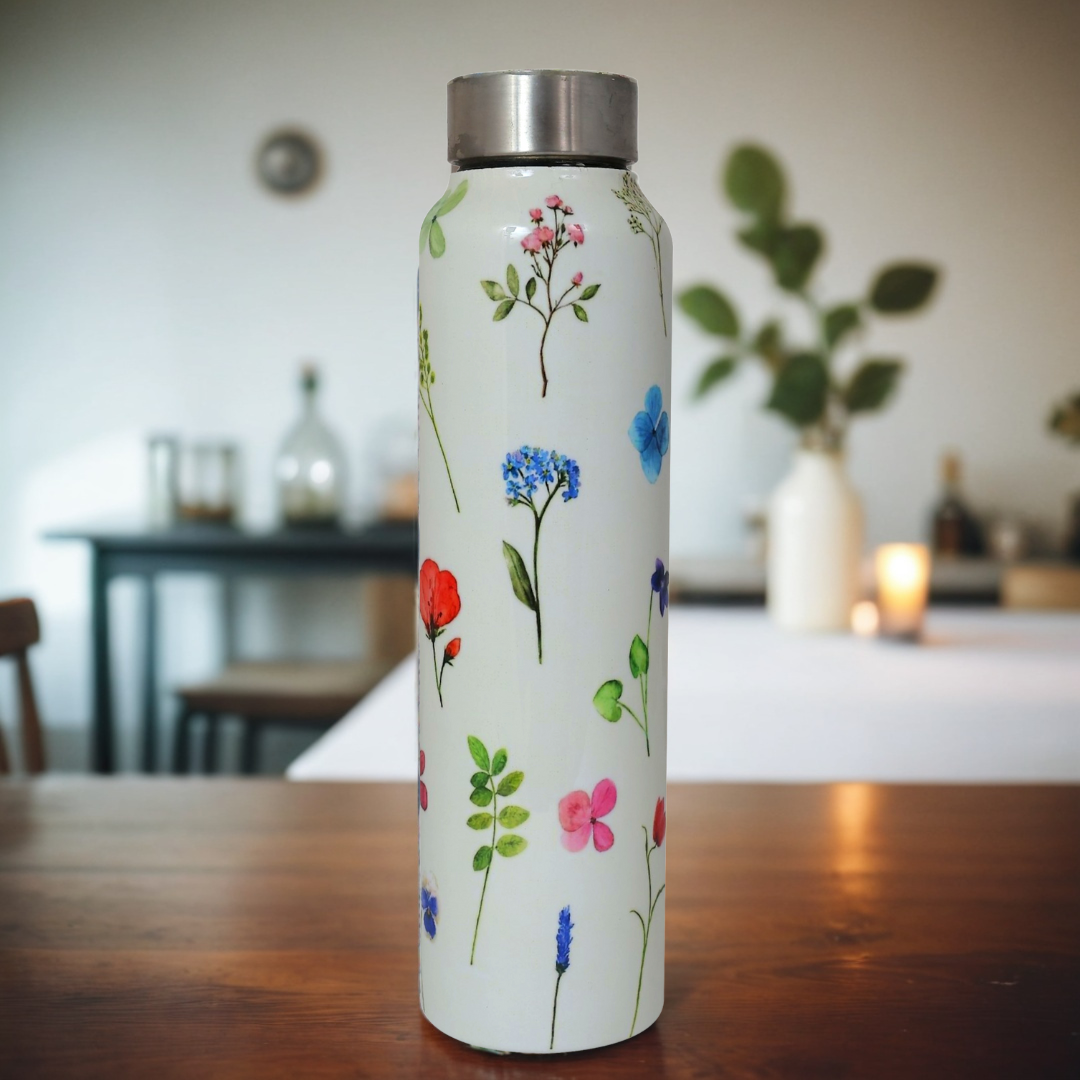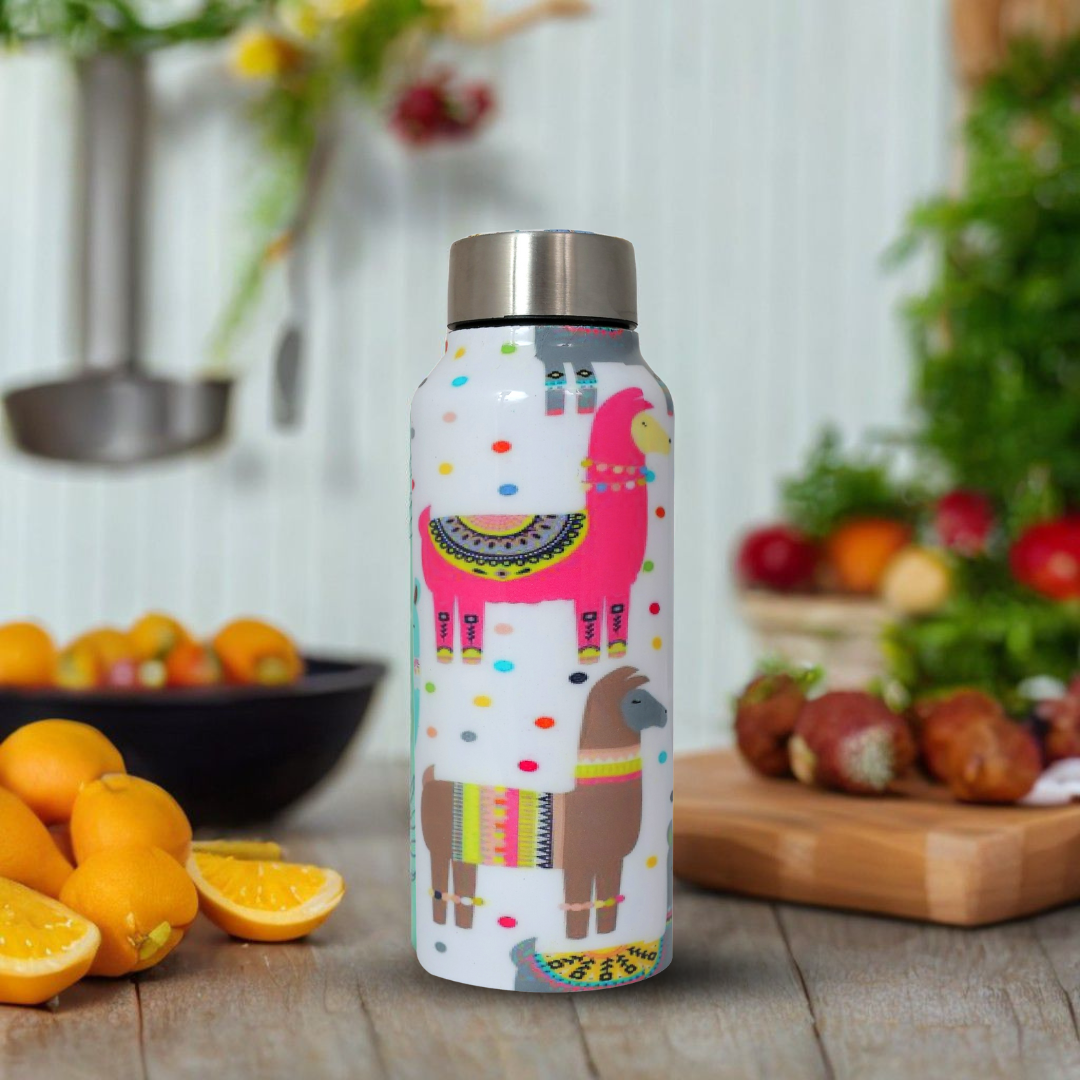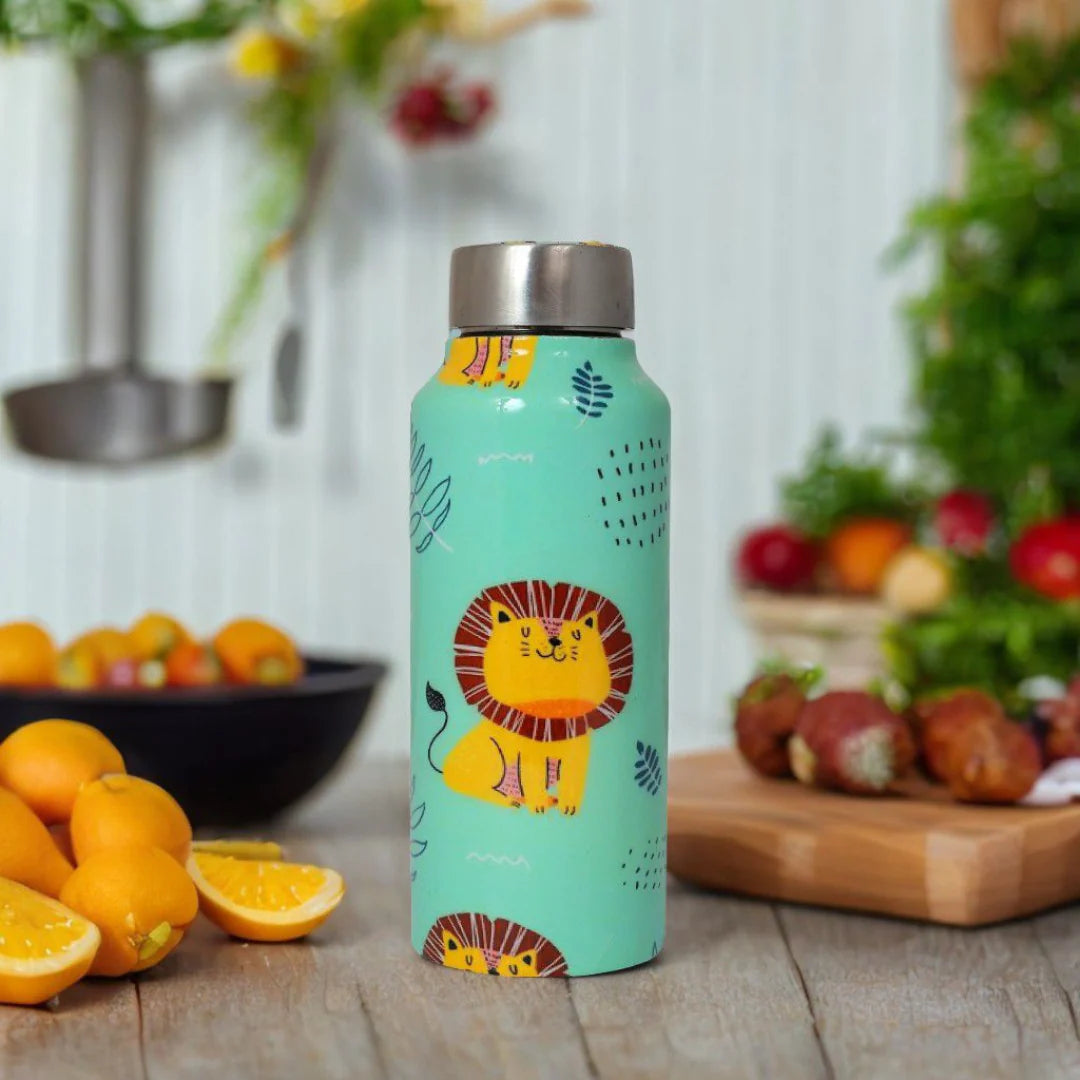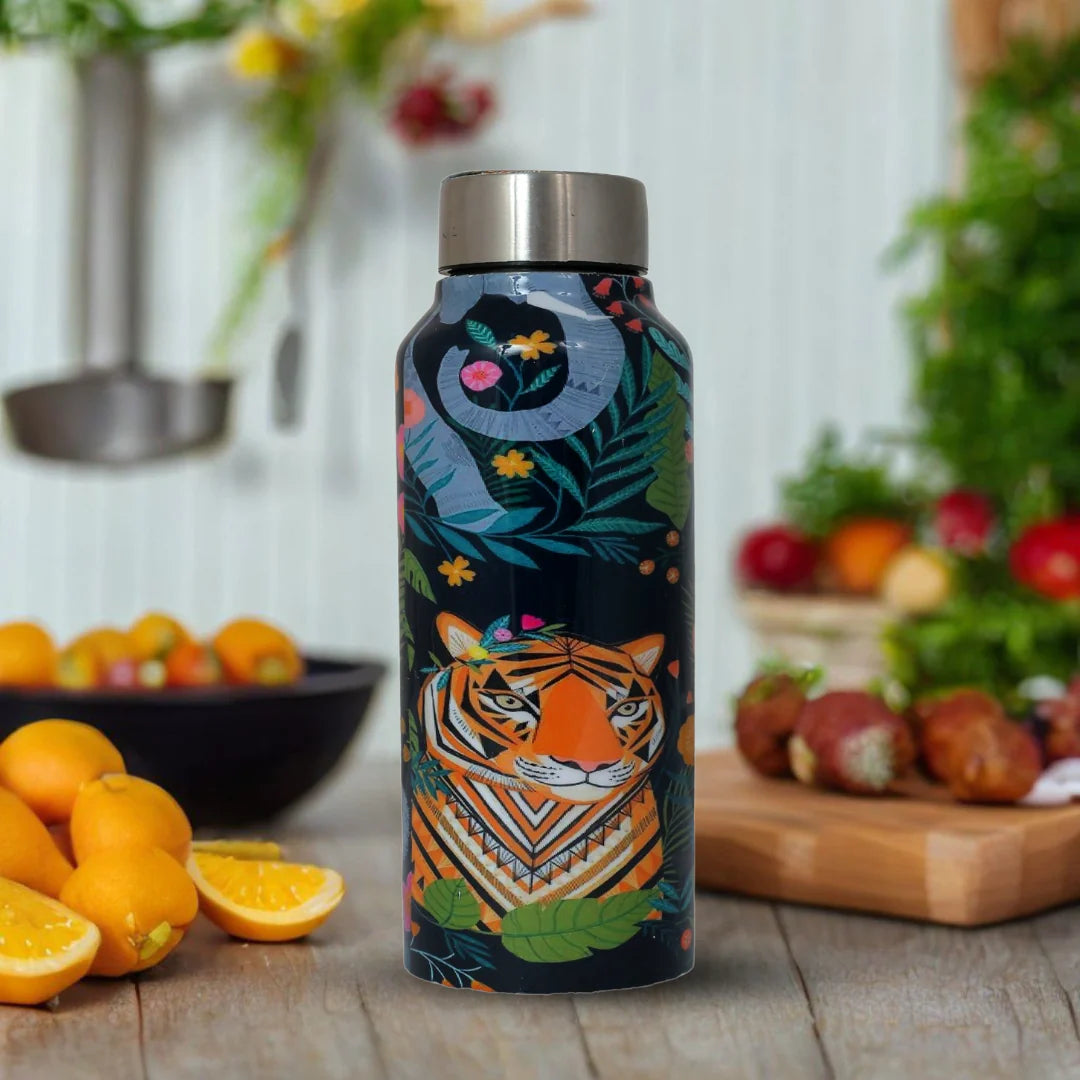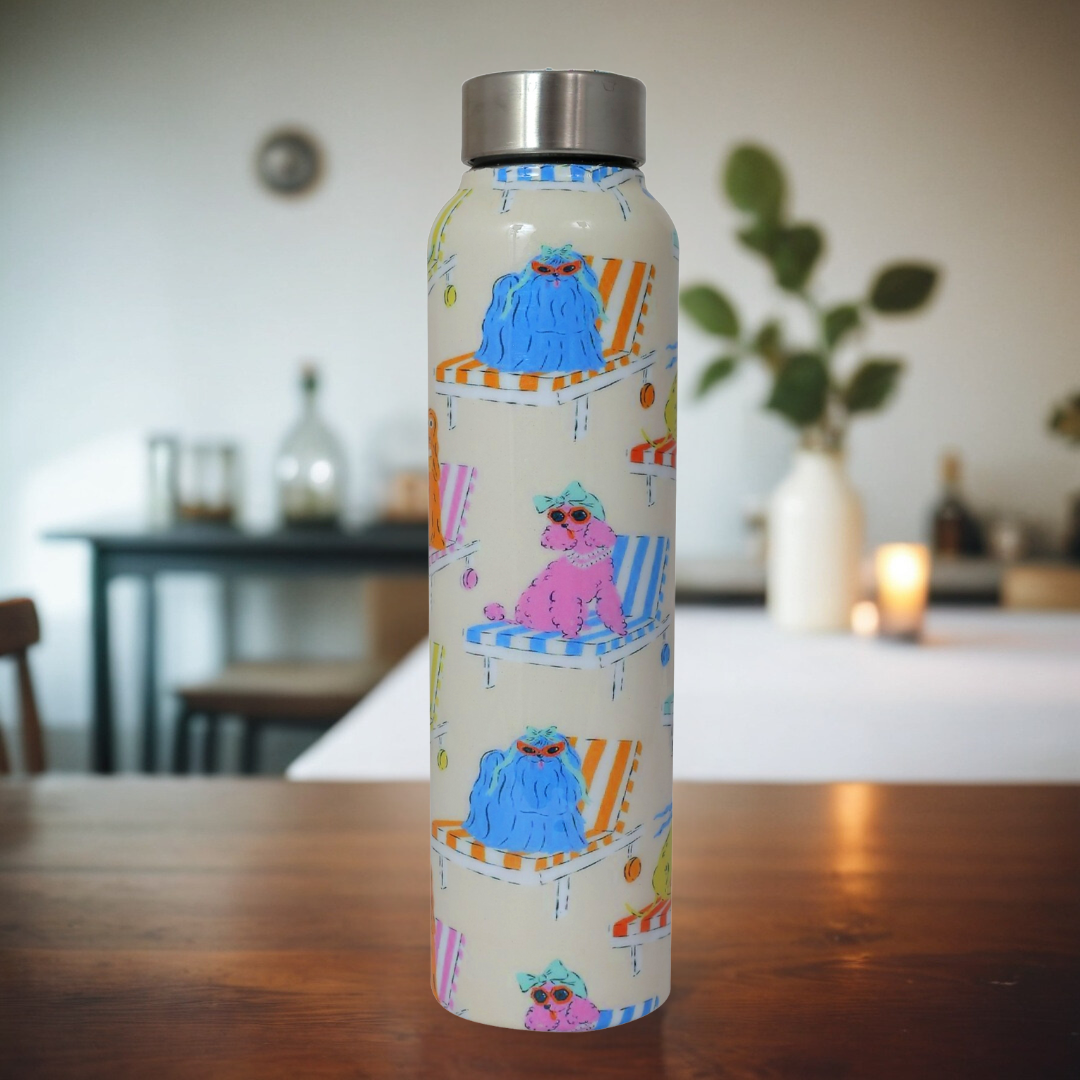Steel is a corrosion-resistant alloy that is a major commodity of an Indian household/kitchen. You can find stainless steel utensils, cookware and bottles easily in markets as steel is a commonly utilized element in our kitchens. Steel has high chromium content, forming a protective oxide layer and preventing rusting. This feature of steel makes it very durable and versatile. Apart from being a household commodity, it is also widely used in construction, automotive, medical instruments, etc. It is highly valued for its longevity, strength, and aesthetic appeal. Talking about stainless steel bottles, they are a valued addition to your kitchen or office as they are durable, eco-friendly, and reusable, offering a safe alternative to plastic. House of Heritage is your trusted goto option for buying stainless steel bottles at reasonable prices.
Yes, our steel water bottles are BPA-free. Made from high-quality stainless steel, they do not contain bisphenol A (BPA) or other harmful chemicals typically found in plastic bottles. This ensures that your beverages remain safe and free from contamination. Choosing BPA-free steel bottles promotes healthier drinking habits and contributes to environmental sustainability by reducing plastic waste.
Yes, stainless steel water bottles are safe for drinking milk. They are non-toxic and free from harmful chemicals like BPA, ensuring safe consumption. However, it's essential to clean the bottle thoroughly after use, as milk can leave residues and odors. Regular washing helps maintain hygiene and prevents bacterial growth, ensuring a safe drinking experience for both water and milk.
House of Heritage offers steel bottles in various sizes to suit different needs. Common sizes available online include 750ml, and 1 liter, ideal for daily use, travel, or outdoor activities. These bottles are designed to be versatile, durable, and easy to carry, providing both convenience and style while ensuring your beverages stay at the desired temperature throughout the day.
No, high-quality stainless steel does not affect the taste of water. Stainless steel is non-reactive and doesn’t leach chemicals, ensuring that water remains pure and taste-free. However, it’s important to clean the bottle regularly to prevent any buildup of odors or flavors from previous drinks. Opt for food-grade stainless steel for the best results in maintaining water quality.
Yes, steel bottles are suitable for kids. They are durable, non-toxic, and free from harmful chemicals like BPA, making them a safe choice. Steel bottles are also resistant to drops and spills, ideal for active children. Additionally, many come in kid-friendly designs and sizes, ensuring easy handling.
No, stainless steel water bottles are resistant to rust due to the chromium content in the material, which forms a protective layer against corrosion. However, poor-quality bottles or those exposed to extreme conditions, like prolonged exposure to saltwater, can experience minor rusting over time. Proper cleaning and maintenance will help prevent rust and keep the bottle in good condition.
Yes, stainless steel bottles are eco-friendly. They are reusable and durable, reducing the need for single-use plastic bottles. Stainless steel is also recyclable, meaning the material can be repurposed at the end of its life cycle. By opting for stainless steel, you minimize plastic waste, lower your carbon footprint, and contribute to environmental sustainability.
Colorful steel water bottles typically feature stainless steel as the primary material for durability and insulation. The vibrant exterior is often created using powder coating or food-safe paint, which provides a smooth, attractive finish and prevents chipping. Some bottles may include silicone or plastic components, such as lids or seals, for leak-proof functionality and ease of use.
Stainless steel water bottles can last for many years, often up to 10-12 years or more, depending on their quality and usage. Their durability comes from being rust-resistant, corrosion-proof, and able to withstand regular wear and tear. Proper care, such as regular cleaning and avoiding harsh impacts, can extend the bottle’s lifespan, making it a sustainable and long-lasting option.
